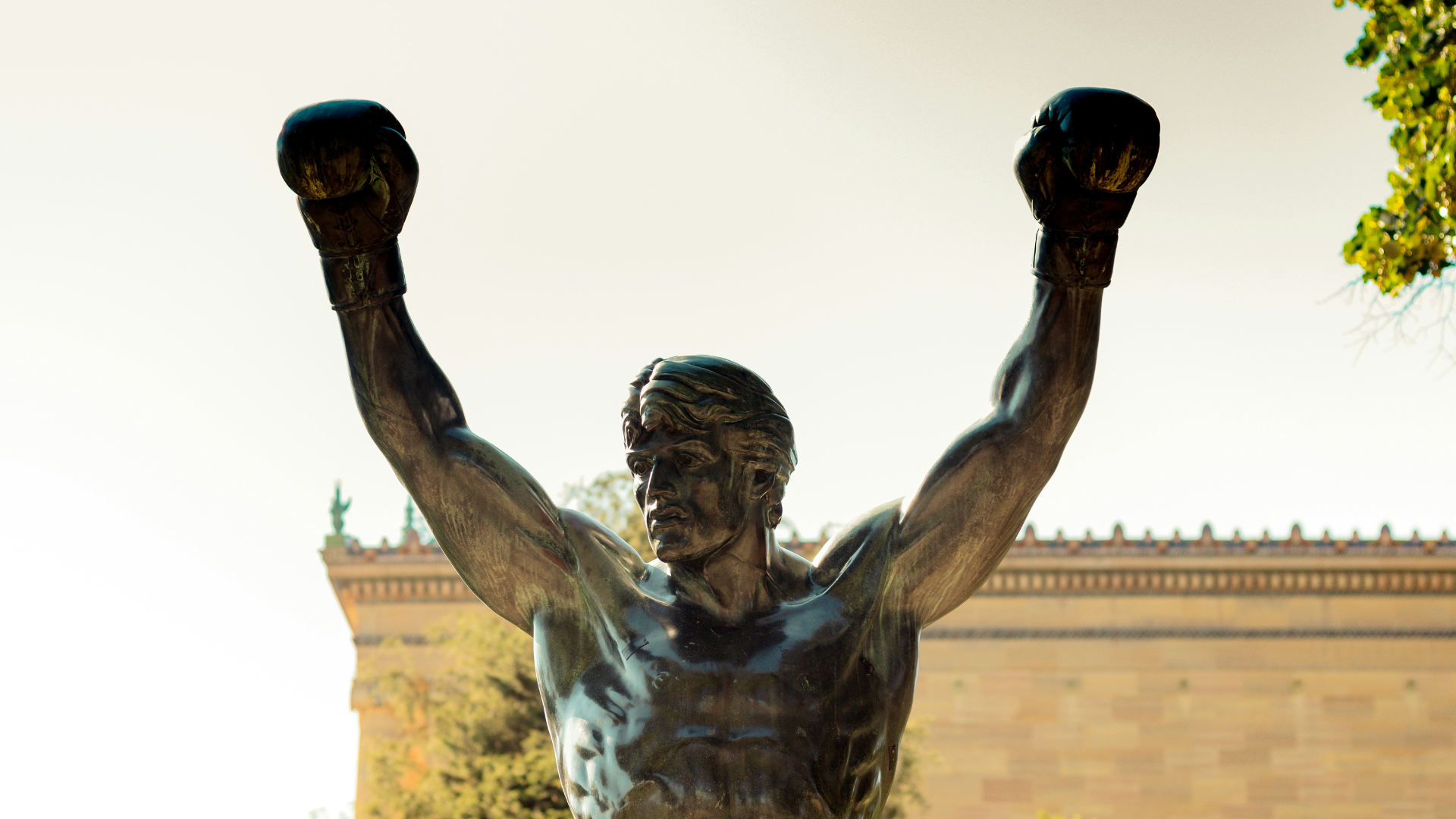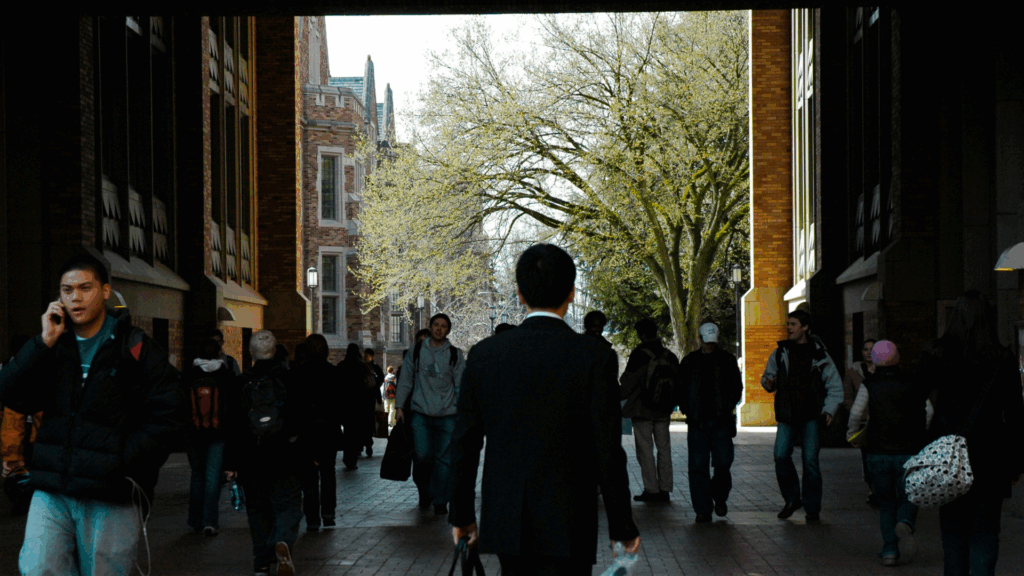The Gospels set before us the figure of John the Baptist, both as an example of many virtues for us to imitate, and as the one chosen by God to prepare for the coming of the Messiah. With him the Old Testament closes and we are on the threshold of the New.
In the Gospel Our Lord tells us that from the days of John the Baptist until now, the kingdom of heaven has suffered violence and men of violence take it by force (Matt 11:12). The Church suffers violence from the forces of evil and every human soul, with its inclination towards evil as a result of original sin, also suffers that violence. A life long struggle will be necessary if we are to follow Our Lord in this life and gaze on Him forever in Heaven. The Christian life is simply not compatible with self-satisfied mediocrity, love of comfort and lukewarmness. Some people, for His sake, would not even rise from a place which is to their ease and liking, unless by their doing so the sweetness of God came to their mouths and hearts without their moving a step and mortifying themselves by losing any of their useless desires, consolations and pleasures. But until they leave these in order to seek Him, they will not find Him however much they cry to Him (St John of the Cross, Spiritual Canticle, 3,2).
Now is an especially good moment to ask ourselves how much we struggle against our own passions, defects, sins and bad inclinations. This struggle is a violence used to fight your own weaknesses and miseries, a fortitude which prevents you from camouflaging your own infidelities, a boldness to own up to the faith even when the environment is hostile.
Today, as yesterday, heroism is expected of the Christian, a heroism in great struggles, if the need arises. Normally, however, the heroism will be in the little skirmishes of each day (J. Escrivá, Christ is passing by, 82).
Our Lord asks us to keep up this struggle through the whole of our life and, most particularly, during those liturgical seasons when He seems, as it were, to draw especially close to us in His Sacred Humanity. This struggle will often take the specific form of a determination to carry out, with the utmost care, all the duties of piety which we owe Him, not neglecting them for anything else that may turn up, or allowing ourselves to be deflected by our state of mind on a particular day or at a particular moment. Our struggle will concern itself with the way we live charity, trying to improve our characters by making a real effort to be friendly, good tempered and considerate to the people around us; with offering our work to God and then doing it as well as we can; in seeing our surroundings as a field for apostolate; in taking all the appropriate steps to make sure that our own spiritual formation does not stagnate … As a rule it will be a struggle carried on in small ways. Let’s listen to Our Lord: ‘He who is faithful in little is faithful also in much; and he who is dishonest in little is dishonest also in much.’ It is as if He were saying to us: Fight continuously in the apparently unimportant things which are to My mind important; fulfil your duty punctually; smile at whoever needs cheering up, even though there is sorrow in your soul; devote the necessary time to prayer, without haggling; go to the help of anyone who looks for you; practice justice and go beyond it with the grace of charity (ibid, 77).
Our love for Our Lord will express itself in constantly beginning again, as we renew our daily efforts not to be overcome by the love of comfort and laziness, which are always lying in wait for us. The devil sleepeth not, neither is the flesh as yet dead; therefore cease not to prepare thyself for the battle; for on thy right hand and on thy left are enemies who never rest (T. á Kempis, The Imitation of Christ, II, 9, 8). We too must never rest in this joyful struggle towards definite goals. The Lord is at our side and has also given each of us a Guardian Angel who will give us invaluable help if only we ask him.
As we make our way towards Our Lord we cannot expect to be victorious all the time. Many of our defeats will be of only limited importance, but even when they are really important, reparation and contrition will bring us closer to God more than ever. And with Our Lord’s help we will begin again. We will not give way to discouragement or pessimism, which always spring from pride. With patience and humility, we can start all over again once more, even though we see no results.
Very, very often we will hear the Holy Spirit say: Make a new start …, be constant; that last failure doesn’t matter; all the bad things in your life put together don’t matter …, make a new start with deeper humility, asking your Lord for still more help.
In the natural sphere, kindliness is usually the result of prolonged patience, of an effort repeated over and over again and constantly improved, The scientist goes back over his calculations and renews his experiments by modifying them until he has found the object of his research. The writer shapes and reshapes his sentence twenty times. The sculptor breaks one rough model after another, as long as he cannot express his interior vision … All human ‘creations’ are the result of unwearied new beginnings (G. Chevrot, Simon Peter). In the supernatural sphere, our love for Our Lord will show itself less in those successes which we think we have achieved than in our ability to begin again, to renew the interior struggle. On the other hand, if we neglect or abandon our resolutions and aims in the interior life, we sink into spiritual mediocrity and lukewarmness. On the way that leads to God to sleep is to die (St Gregory the Great, Homily 12 on the Gospels). Discouragement always has its roots in pride and excessive self-confidence; and it induces us to abandon those resolutions and goals which were once suggested to us by the Holy Spirit speaking in our inmost hearts.
Our failures, perhaps quite unforeseen, can very often lead to progress in our interior life, if we react to them with humility and a firmer determination to follow Our Lord. It has rightly been said that perseverance does not consist in never falling down, but in always getting up again when we do. When a soldier in a battle is wounded or has to give ground a little, no one is so demanding or so ignorant of military matters as to think that this is a crime. Only those who do not fight are never wounded; those who charge the enemy with the greatest spirit are the ones who receive the most blows (St John Chrysostom, Second Exhortation to Theodore, 5).
Let us ask Our Lady for the grace never to abandon our interior struggle, however depressing or even catastrophic our previous experience may have been, and for the grace and the humility always to begin again.
Let us also ask Our Lady today that we may always persevere in our apostolate, even if it does not seem to produce any fruit. One day, perhaps when we have already arrived in Heaven, Our Lord will show us the fruits of that apostolate and how, although it sometimes seemed to us to be useless, it was in fact always effective. The seed which is sown always brings forth grain: some a hundredfold, some sixty, some thirty …(Matt 13:8), much grain from a single seed.
Look up and raise your heads, because your redemption is drawing near (Luke 21:28).The Acts of the Apostles tell us that one day Peter and John were going up to the temple to pray. They met a man who had been lame ever since he was born and he asked them for alms. Then Peter said to him: I have no silver or gold, but I give you what I have; in the name of Jesus Christ of Nazareth, walk (Acts 3:6).
In the name of Jesus Christ … this is where we have to begin again in the apostolate, and in our struggle against everything that might separate us from God. This is our strength. We don’t begin again through our own determination, as if we were claiming to be able to advance under our own steam. By ourselves we can do nothing, but, I will all the more gladly boast of my weaknesses, that the power of Christ may rest upon me (2 Cor 12:9). And how great that power is!
Let us imitate St Peter. After a wasted night during which he had caught no fish, he let down the nets into the sea once more, simply because Our Lord told him to. Master, he said, we toiled all night and took nothing! But at your word I will let down the nets (Luke 5:5). In spite of their weariness, in spite of its not being the proper time for fishing, those men began once more to let down the nets, which they were already washing in readiness for the next day. They brushed aside all the human considerations which would have made it unreasonable to go on fishing. Peter’s confidence in his Lord made him return to the work. Peter obeyed without any further argument.
Our own hope is firmly based on the knowledge that Our Lord wants us to begin again every time we feel that we have failed in our interior life or in our apostolate. ‘At your word, Lord, I will begin again.’ If we live like this, our interior life will never be haunted by that spectre of discouragement which has plunged so many souls into spiritual mediocrity and unhappiness.
Begin again … Jesus asks it of us with special affection in these days leading up to Christmas. Lift up your heart gently, then, after a fall, humbling yourself before God in the knowledge of your wretchedness, without being in the least surprised that you have fallen. Weakness must expect to be weak, feebleness to be feeble and misery to be miserable. Nevertheless, detest the offence against God with all your heart; then, with great courage and confidence in his mercy, go forward on the path of virtue which you had forsaken (St Francis de Sales, Introduction to the Devout Life, 3, 9).
By Francisco Fernandez from In Conversation with God, New York, Scepter, 1990, Volume 1, pp. 89-95
Photo By



